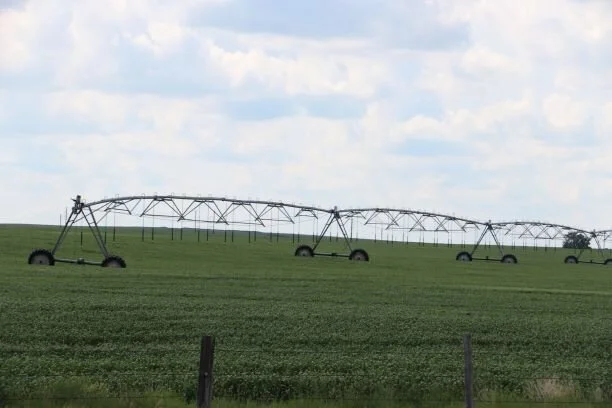"What we've seen now from the past month of heat is that the high-elevation snow is rapidly depleting," said Jonathan Boyd, a hydrologist with B.C.'s River Forecast Centre. "We're on pace to be the earliest snow-free that the province has recorded. "We've had just a phenomenal melt so far, and where it's a little bit scary is … we're moving into this year in a really precarious position."
Canada contributes to financing a project to enhance climate resilience of Southern Iraq's agriculture sector and empower women as change agents [EN/AR]
Activities under the agreement include providing technical assistance, strengthening the leadership and active engagement of women farmers in the promotion and adoption of climate smart agriculture, improving agricultural value chain efficiency and rural electrification. Furthermore, the activities will also provide updated digital tools for a more sustainable natural resource management in agriculture.
Canada must upgrade flood-control infrastructure to avoid food security disaster: senators
Flood mitigation infrastructure that did not meet provincial standards caused British Columbia’s agriculture sector to lose $285 million, according to a new Senate report. The study, “Treading Water: The Impact and Response to the 2021 British Columbia Floods,” released on Thursday included testimony and previous analysis on local infrastructure, which concluded 87 per cent of dikes in the province’s Lower Mainland were in “less than fair condition,” and 71 per cent of dikes were expected to “fail simply by overtopping.”
Water Security Agency Holds Open House Events For Lake Diefenbaker Irrigation Projects
The public is invited to take part in a couple of open house events this week to learn more about the Lake Diefenbaker Irrigation Projects. The 10 year multi-project is expected to provide a major boost for the Province's agriculture sector. Once completed, the Lake Diefenbaker Projects will provide over 500,000 acres of agricultural land in southern and central Saskatchewan with water. Patrick Boyle, the Executive Director of Communications with the Water Security Agency, says they are holding a couple of open house events this week so that people have a better understanding of the work that is being planned and the impact it will have for the areas.
‘There’s nothing you can do about it’: Drought threatens crops across Canada
Drought is impacting the agriculture sector across Canada but the brunt of the dry weather is being felt in Manitoba and Saskatchewan, where moisture levels have been low since last fall. Moisture levels have improved in B.C. and Alberta, where there’s been more precipitation and snowpack. Ontario has received about half of the precipitation expected at this time of the year.
‘Incredibly destructive’: Canada’s Prairies to see devastating impact of climate change
As the climate continues to warm at an alarming rate, experts warn if dramatic steps to mitigate global warming are not taken, the effects in Canada’s Prairie region will be devastating to the country’s agriculture sector. According to Environment and Climate Change Canada, the country is warming, on average, about double the global rate. Scientists with the National Oceanic and Atmospheric Administration in the U.S. recently found 2020 was earth’s second-hottest year on record, with the average land and ocean surface temperature across the globe at 0.98 of a degree C above the 20th-century average. However, the agency found the northern hemisphere saw its hottest year on record, at 1.28 degrees C above the average.
Toward The Creation Of A Canada Water Agency Environment And Climate Change Canada Seeks Comments On Discussion Paper
The federal government seeks feedback on whether the objectives outlined in the Discussion Paper are the right objectives for the government to pursue and input on which objectives should be prioritized. Input is sought from provinces, territories, Indigenous peoples, local authorities, the private sector, non-government organizations, and the public. Feedback will inform the federal government's next steps in implementing the CWA. The deadline for providing feedback on the Discussion Paper is March 1, 2021. Information about where to send responses is provided in the Discussion Paper. In January 2021, the federal government will host a virtual national freshwater policy forum. A series of regional forums will be held in February 2021 to provide further opportunities for Canadians to participate in consultations on the Discussion Paper.



![Canada contributes to financing a project to enhance climate resilience of Southern Iraq's agriculture sector and empower women as change agents [EN/AR]](https://images.squarespace-cdn.com/content/v1/583ca2f2d482e9bbbef7dad9/1689560571658-JJ7BD8XAQGWBRXEEPM0J/Screenshot+from+2023-07-16+20-22-43.png)




